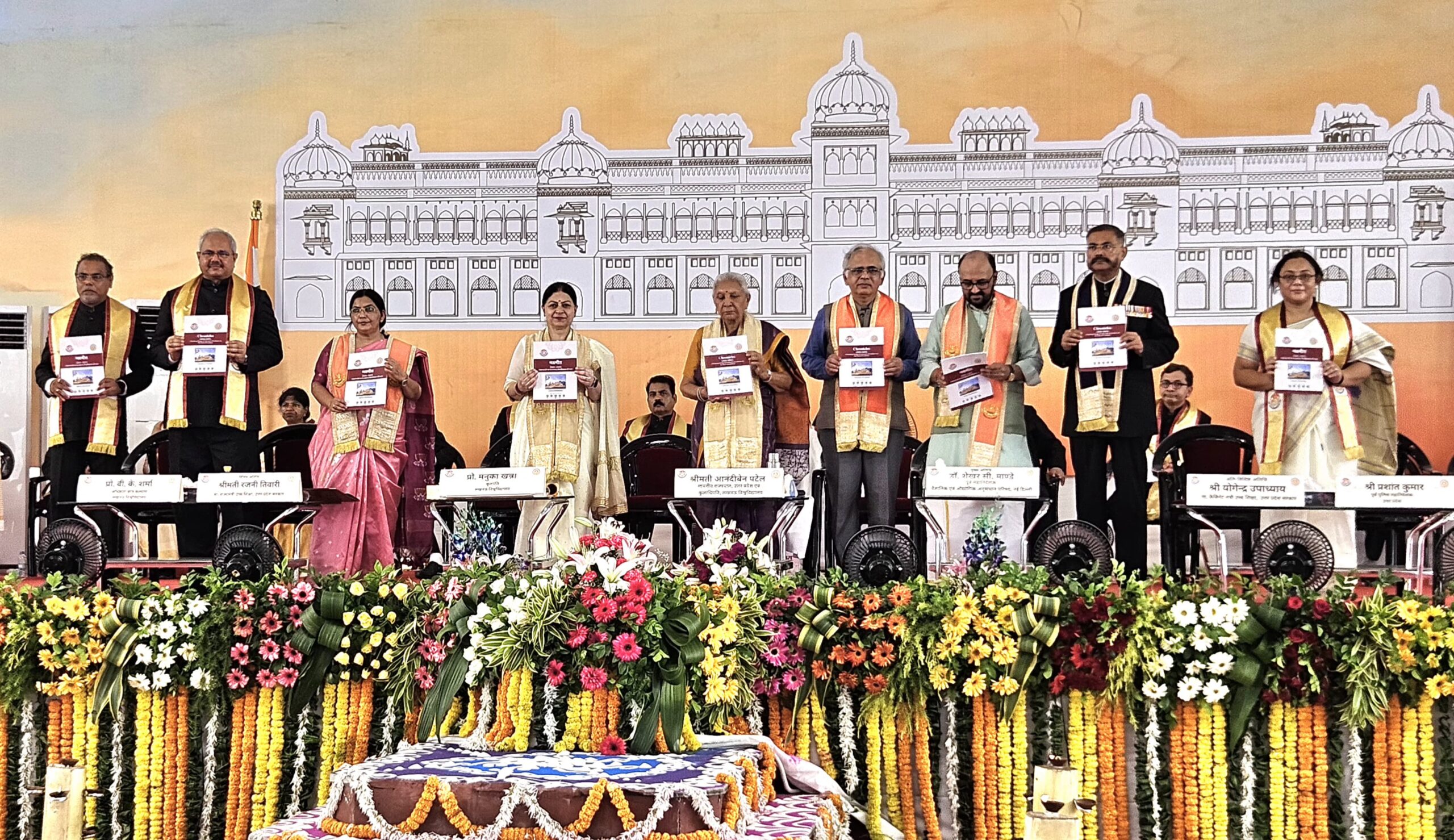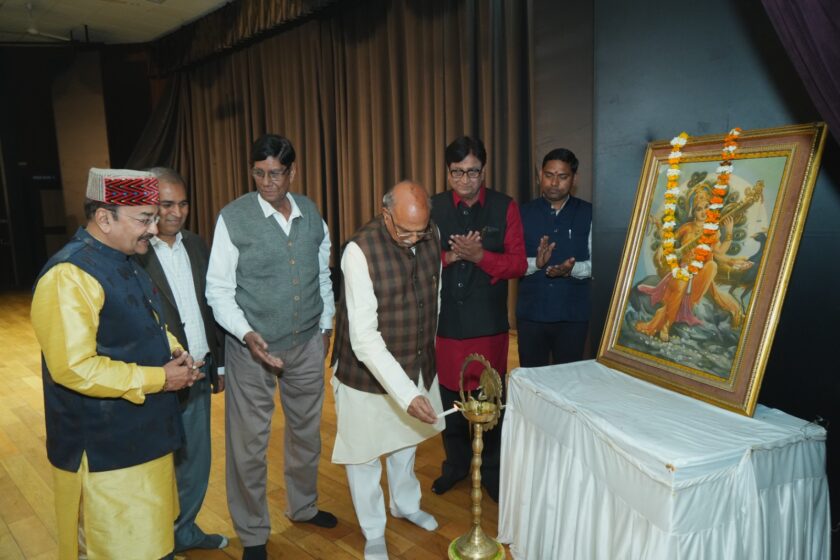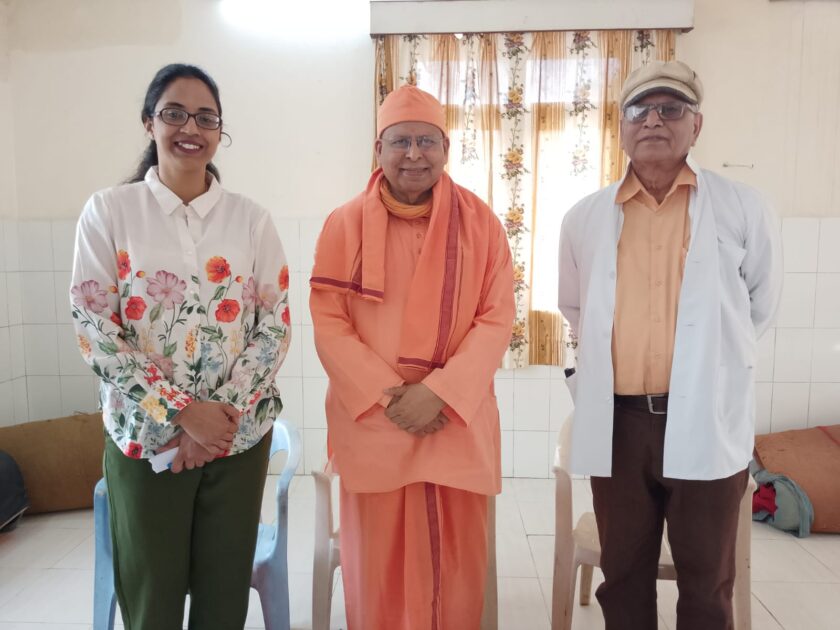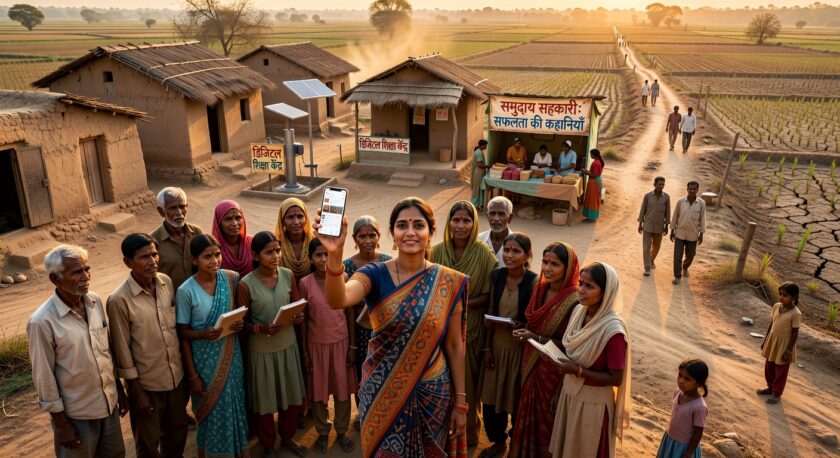Lucknow: The 2025 Convocation Ceremony at LU was graced by several eminent dignitaries, including the Governor and Chancellor Anandiben Patel, Higher Education Minister Yogendra Upadhyay, Minister of State for Higher Education Rajni Tiwari, Vice-Chancellor Prof. Manuka Khanna, Chief Guest Former Director general CSIR, Dr. Shekhar C. Mande, former Director General of Police, Uttar Pradesh Prashant Kumar, who was conferred with the Honoris Causa degree for his exceptional contributions.
This ceremony honored the achievements of graduating students, the excellence of faculty, and the University’s continued role in advancing higher education, research, and societal development.
Address by Governor and Chancellor Anandiben Patel –
In her keynote address, the Chancellor extended heartfelt congratulations to graduates and faculty, commending their outstanding accomplishments. She noted that over 200 medals were distributed—marking a historic milestone for the University—of which 80% were awarded to female students, symbolizing empowerment and excellence in women’s education.
She emphasized that the University attracts students not only from Lucknow but also from surrounding regions and abroad. Highlighting the significance of research and innovation, she referred to government initiatives supporting young innovators. She remarked that primary schools in villages form the foundation of a developed India by 2047.
She mentioned upcoming measures, including the promotion of Kaushal (skills) and Navachar (innovation), modernization of 10,000 school laboratories, and enhanced internet connectivity under the NET scheme.
She also cited growth in higher education, noting that student strength in IITs has risen from 65,000 to 1,00,000, and that 10,000 research fellowships will soon be launched. She announced the establishment of a Book Museum to preserve and document one crore manuscripts.
The Governor emphasized adherence to 75% attendance rules, encouraged students to pursue research, innovation, and patents, and reminded them of historical instances where Indian research credit was taken abroad. She praised rural students’ achievements, urged improvement in NIRF rankings, and concluded with blessings:
“Continue your quest for knowledge, remain dedicated to research, and contribute to the building of a strong India.”
Address by Vice-Chancellor Prof. Manuka Khanna
Vice-Chancellor Prof. Khanna began by congratulating students and faculty. She highlighted the University’s recent national ranking achievements:
• 27th among public state universities in the latest NIRF ranking,
• 18th at the national level, and
• 29th in faculty performance.
Notably, the Faculty of Management secured a place in the top 100 institutions in its very first year.
She further mentioned the University’s progress in India Today rankings, particularly 4th place nationally in student career progression and placements, attributing these successes to collective effort and visionary leadership, especially that of former Vice-Chancellor Prof. Alok Kumar Rai.
She emphasized the importance of innovation and technology, citing support for 18 registered startups through the Navankur Foundation. Major infrastructure projects include the Institute of Pharmaceutical Sciences, Kautilya Building, and the renovation of Tagore Library and Auditorium.
On social responsibility, she noted initiatives such as blood donation camps, free cervical vaccination drives, nutrition kit distribution in adopted villages, ORS awareness, cleanliness campaigns, and Happiness Week. Health facilities for staff were strengthened with cashless medical insurance and resident doctors.
Transparent administration and merit-based faculty recruitment improved the student–teacher ratio from 1:35 to 1:27. Students were encouraged to engage in governance, cultural and sports activities, and national competitions. Achievements included 32 inter-collegiate and inter-university cultural awards, participation of 80+ students in sports, 26 silver and 14 bronze medals, and the cricket team’s T20 international victory in Nepal.
She concluded with a reminder to graduates:

“There is no friend like knowledge, no companion like learning, and no joy greater than wisdom.”
Address by Higher Education Minister Yogendra Upadhyay
The Minister delivered an impactful speech, stressing the crucial role of education in shaping India’s future. He urged graduates to become role models in society, aligning themselves with the vision of making India a developed nation by 2047.
He highlighted the importance of innovation, research, ethics, and values in education and encouraged students to draw inspiration from India’s rich cultural heritage.
Address by Minister of State for Higher Education Rajni Tiwari
Tiwari congratulated the graduates and highlighted the increasing participation of students from affiliated and associated colleges, reflecting the broader engagement of higher education across the state.
She expressed happiness that Anganwadi and primary school children were part of the ceremony, symbolizing the inclusiveness of educational reforms. She urged graduates to rise above being job-seekers, and instead become job-creators, fostering entrepreneurship and innovation.
Address by Chief Guest Dr. Shekhar C. Mande
Dr. Mande described it as a privilege and honor to attend the 2025 Convocation of the University of Lucknow. He praised the University’s longstanding legacy of academic excellence and its impact on society by nurturing generations of scholars, innovators, and leaders.
He shared his personal family connection with the University, emphasizing its deep influence. He reminded students that graduation is not the end of learning, but the beginning of a lifelong journey.
He urged graduates to use their knowledge for societal good, face uncertainties with courage and confidence, and balance academic success with ethical responsibility.
Acknowledging the role of teachers, mentors, families, and peers, he said achievements are the result of collective support.
He emphasized broader responsibilities of education—sustainability, environmental stewardship, and humanity’s welfare. Referring to India’s philosophical heritage, he invoked Mahatma Gandhi and Gautama Buddha, urging students to embrace honesty, empathy, courage, and non-violence.
Concluding, he congratulated the graduates once more and called on them to play their role in realizing the vision of a developed and progressive India by 2047.
“Convocation is but a step—the knowledge, values, and skills you have acquired will shape not only your future but also the future of our society and nation.”









